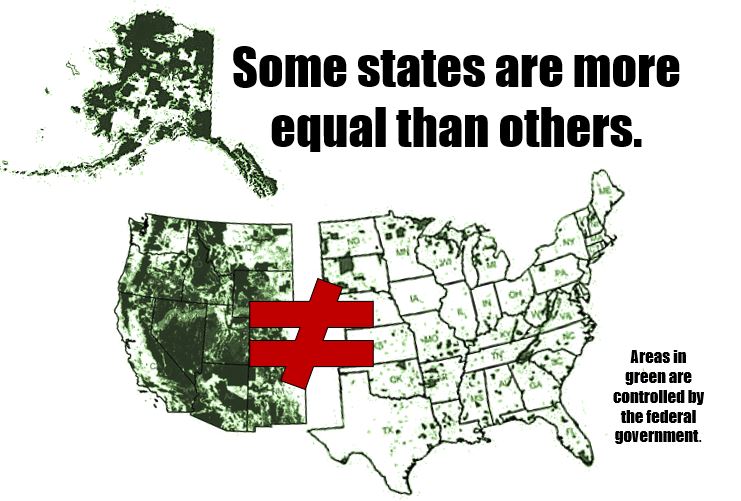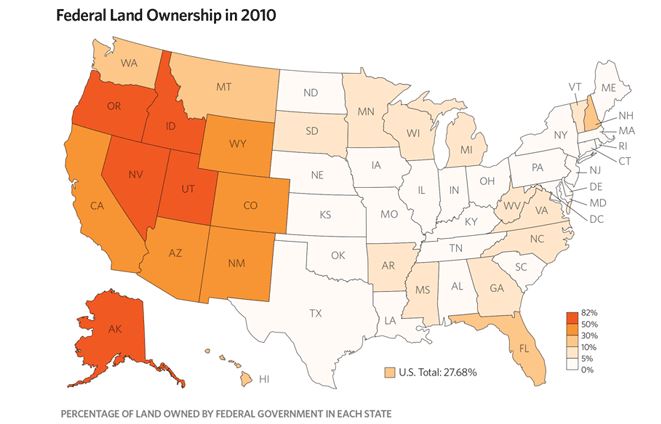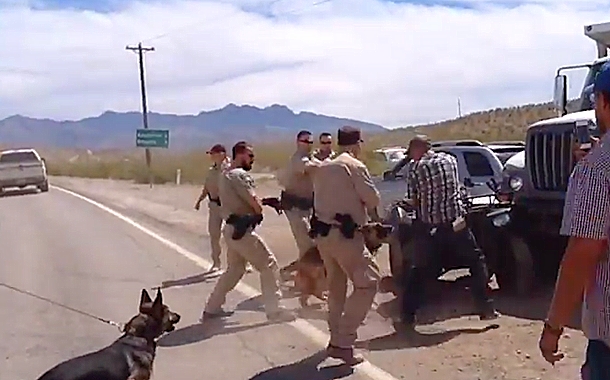“Sadly, these bills are necessary because the federal government has not recently been that good neighbor, and ideological zealots in our land management agencies have been obstructing vital local infrastructure projects and running roughshod over the wishes and jurisdictions of local communities…” ~House Natural Resources Chair, Tom McClintock~
by Marjorie Haun
The transfer of tracts of federally-controlled lands to states and local governments is an ongoing process, occurring literally, ‘a little here, and a little there.’ And despite the false narratives pushed by environmentalist special interests, big corporations, and big-government D.C. pols, the benefits of state and local stewardship over lands, water, and other natural resources are well-documented. The House Committee on Natural Resources, charged with formulating policy which furthers public safety (the general welfare) and sustainable economic development, is taking on this hot-button–and unfairly maligned–issue, with bills addressing small, regional transfers which make good economic and environmental sense, and are supported by locals governments and citizens.
This press release, issued on by the House Committee on Natural Resources, details each of the four bills now in process:
Panel Reviews Slate of Locally Supported Land Transfers to Facilitate Critical Infrastructure Development
WASHINGTON, D.C., April 5, 2017 –
Today, the Subcommittee on Federal Lands held a legislative hearing on a slate of bills that would approve targeted land transfers to facilitate critical infrastructure development and job creation.
“Sadly, these bills are necessary because the federal government has not recently been that good neighbor, and ideological zealots in our land management agencies have been obstructing vital local infrastructure projects and running roughshod over the wishes and jurisdictions of local communities,” Subcommittee Chairman Tom McClintock (R-CA) stated.
H.R. 218, introduced by Rep. Don Young (R-AK), authorizes a land exchange to facilitate the construction of a road linking the City of King Cove to the City of Cold Bay to access a modern airport.
“Who would have believed that this battle for safe access would have taken decades – a right that most people in the United States enjoy daily?” Della Trumble, a member of the Agdaagux Tribe of King Cove, speaking on behalf of the residents of King Cove, stated.
Harsh weather conditions in winter and the lack of infrastructure has resulted in a number of fatal accidents over the years. The land exchange will facilitate the construction of a life-saving evacuation route road to provide access to hospitals and emergency services for the 1,000 residents of King Cove.
“We desperately need the 11-mile, one-lane gravel road connecting King Cove to the Cold Bay Airport… No mother should ever have to witness their own precious daughter crash-land at the King Cove Airstrip and it should not be happening in this day and age,” Trumble continued.
H.R. 497, introduced by Rep. Paul Cook (R-CA), exchanges Bureau of Land Management land within the San Bernardino Valley Water Conservation District to expand existing aggregate mining operations, establish protected habitat for threatened and endangered species and facilitate locally supported land management agreements.
“HR 497 represents the culmination of more than a dozen years of planning and cooperation among 12 local agencies in Southern California,”General Manager of the San Bernardino Valley Water Conservation DistrictDaniel Cozad said. “It supports local communities and businesses while protecting… critical habitat and four endangered species.””
The bill, cosponsored by Rep. Pet Aguilar (D-CA), could result in $8.5 million in new infrastructure projects and a $36 million increase in annual payrolls from the new site.
Similarly, H.R. 1728, introduced by Rep. Mike Simpson (R-ID), would modify the boundary of the Morley Snake River Birds of Prey National Conservation Area to facilitate the completion of the segments of the Gateway West Transmission Line in Idaho. It is estimated that the project will result in 1,200 new jobs and $3.5 billion in private investment.
View the entire hearing below:




